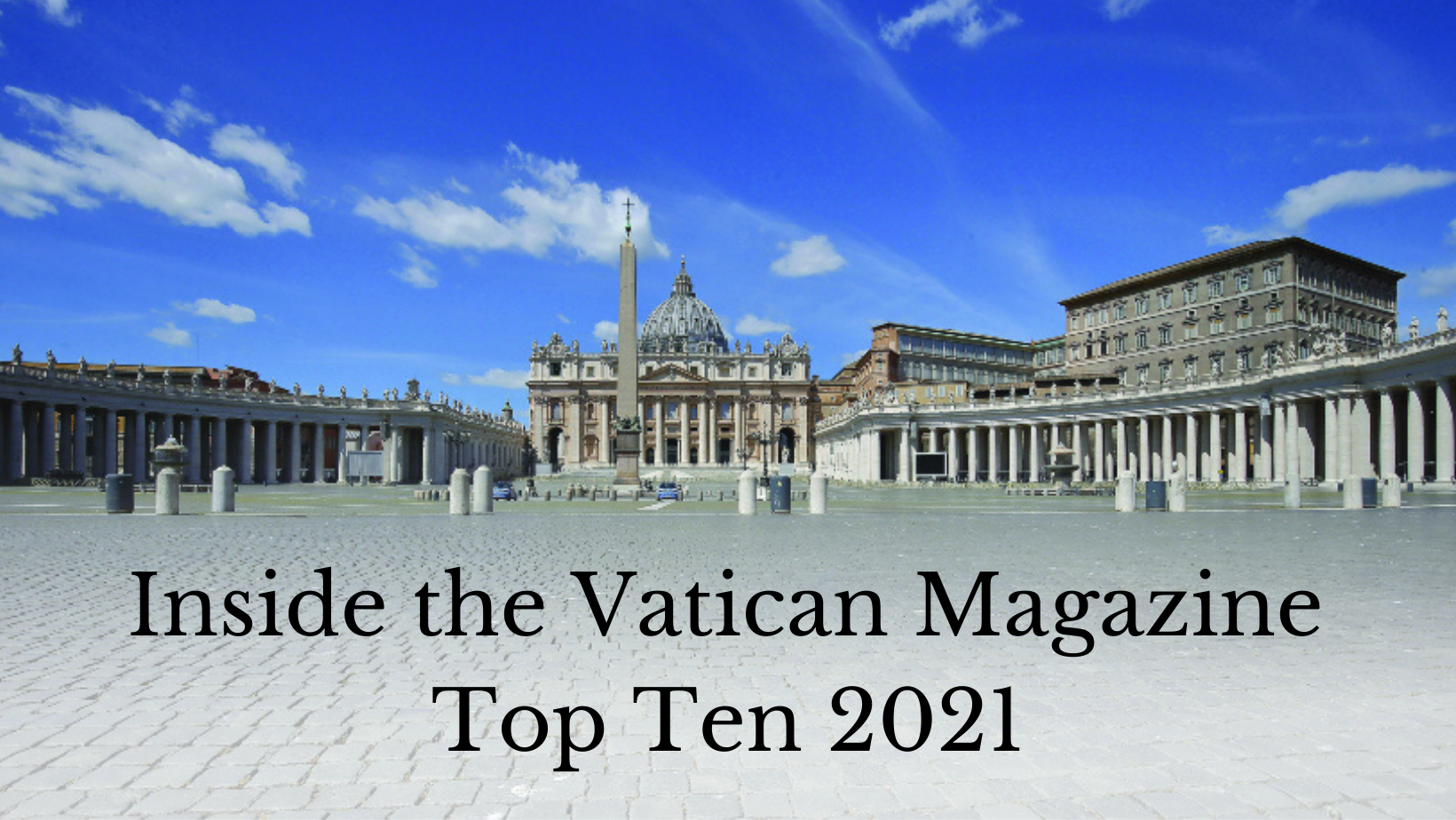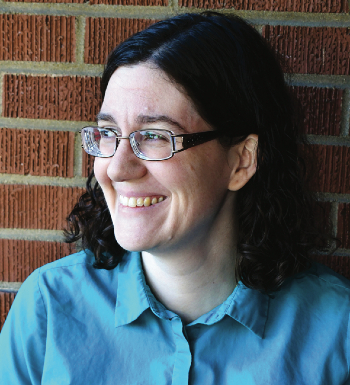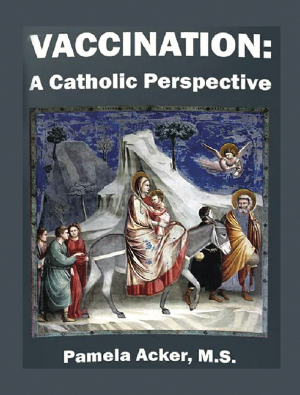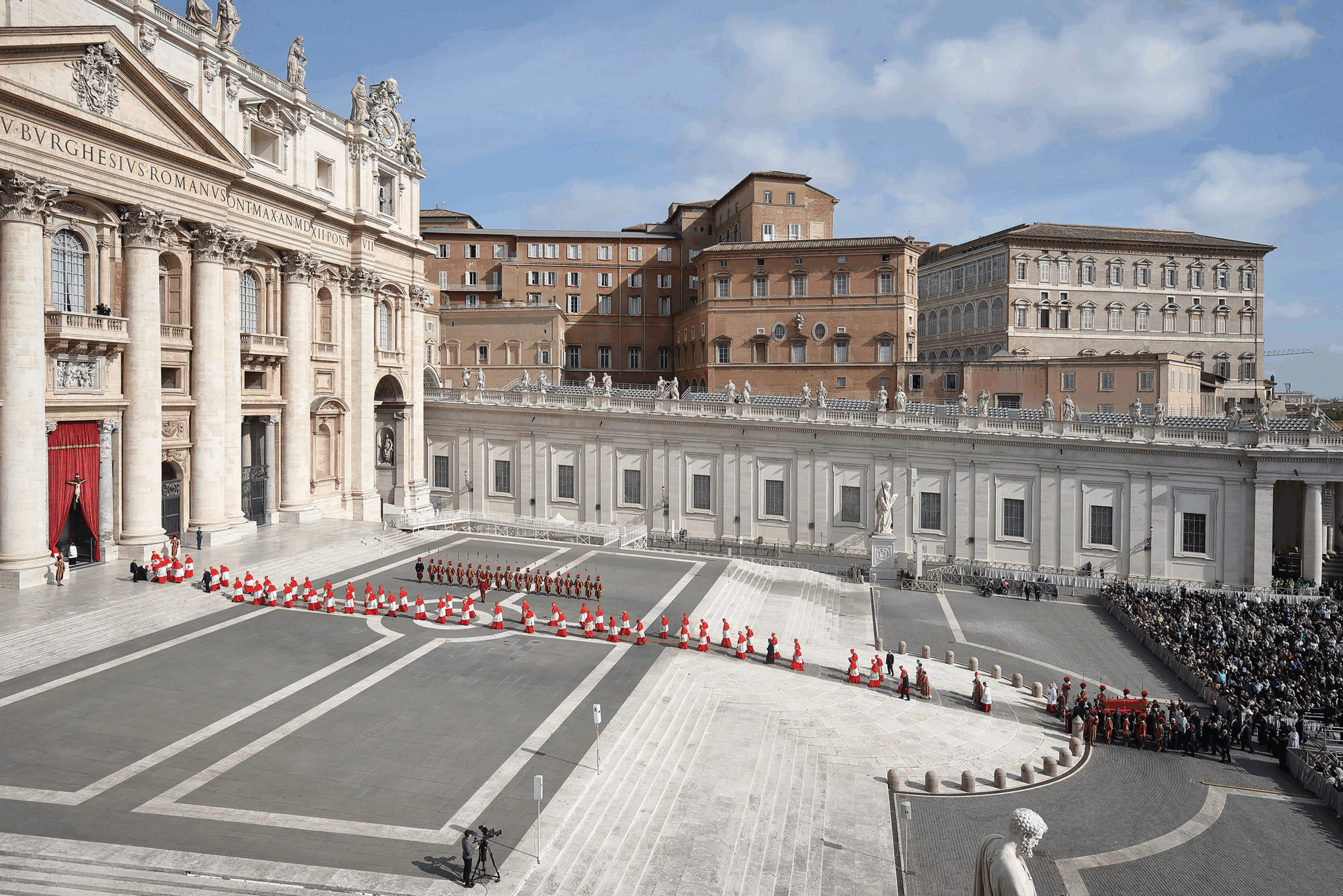
The world can be a dark place,
yet these are people who refuse
to let the darkness prevail
It’s been two years since Covid first came to international attention, and countless aspects of life have never been the same since. Yet, one thing that has remained constant is the determination of individuals to follow the Spirit’s call to transcend their own comfort, their own desires, their own interests, and brave sometimes severe difficulties in service to their brothers and sisters in the human family.
It is the call echoed by Pope Francis: “The gift of the Holy Spirit has been bestowed in abundance so that we may live lives of genuine faith and active charity.”
“Go out,” he says, “…become the Word in body as well as in spirit.”
And so we highlight here 10 people — admittedly, just a tiny few among the many, many faithful and selfless souls around the world — to underscore not only the need and the challenge of following the Gospel command to “love your neighbor,” but also to hold them up as a beacon of encouragement. We are all called to live lives of service and we all find it daunting at times; but the Lord sustains us and gives us hope.
These are men and women who bring us some of that hope. The world can be a dark place, yet these are people who refuse to let the darkness prevail. They are Inside the Vatican’s Top Ten of 2021.
 Pamela Acker
Pamela Acker
Saying “no” to vaccines dependent on abortion
A Catholic researcher seeks to dispel the confusion
Miss Pamela Acker is a medical researcher with a master’s degree in biology, a former vaccine researcher, a science teacher, and a devout Catholic who looks at health from the perspective of man as a created being.
Modern Westerners are used to accepting the prevalent atheistic-evolutionary model of nature without realizing some of its consequences.
But consequences there are – including a worldview, shared by contemporary academics and popular culture, that as the product of random, impersonal forces, nature is infinitely malleable. Natural characteristics and processes are no longer the reference points for what is good for man – physically and psychologically – and what we can do to the human body is only limited by our ingenuity.
This view is completely foreign to a worldview that recognizes nature as created immediately and intentionally by an all-knowing God, and the human body as an integral part of the person – not merely “a transport for the brain.”
Miss Acker applies this reasoning to the subject of vaccines, including Covid vaccines, in her book, Vaccination: A Catholic Perspective published in 2020 and currently being updated for a re-release in early 2021 by the Kolbe Center for the Study of Creation.
“We underestimate the fact that the human body is designed to keep itself healthy and repel pathogens,” she says. “That isn’t to say that medicine has nothing to offer us, but we need to understand its limits, and that includes re-thinking vaccines. Taking a vaccine is just not the same as having a healthy immune system.”

Miss Pamela Acker’s book Vaccination: A Catholic Perspective, published in 2020 and currently being updated for a re-release in early 2022
In fact, she says, the current vaccines will never produce the coveted “herd immunity” that is supposedly the golden ticket to “eradication” of the Covid virus. “The Covid vaccines on the market started out with a claimed efficacy of over 90%, which was already debatable; after 6 months, their reported efficacy has plummeted to 50% for Pfizer, 64% for Moderna, and a whopping 3% for J&J.”
She is even more incredulous over the newest recommendation for children age 5 and over to receive the Covid vaccine: “With a small sample size (2200 children), no tracking of who had natural immunity and who didn’t, and a follow-up period of only one month, there’s just not enough data to make any research-based claims about safety or efficacy in children.”
But Miss Acker in particular raises the alarm about the morally-problematic origins of many vaccines: the HEK-293 cell line that was originally derived from a female baby aborted in the 1970s. “HEK” stands for “human embryonic kidney” and “293” indicates it was the 293rd experiment by researcher Frank Graham. While it’s possible that not all his experiments were done on fetal tissue, there is evidence in the scientific literature that he produced other fetal cell lines that aren’t used commercially.
“One of the points that the researchers try to obfuscate is just how many abortions were involved in vaccine development. It wasn’t just the babies that were used to produce the successful cell lines – there were many other babies whose tissue was harvested the same way.” But the moral problem doesn’t end there. “There’s also the problem of trafficking human tissue,” Acker says. “This is an ongoing moral issue. It’s not confined to the past.”
Most importantly, kidney cells die quickly, so they must be harvested from a living organism. “It’s clear that the unborn baby was alive when the kidney was cut out of her body,” she says. “We need to understand how evil the origin of these cell lines really is.”
Miss Acker often speaks of the “appropriation of evil,” and cautions that when one knowingly benefits from someone else’s evil action, even after the fact, “that affects your character internally in a more profound way than people realize.” She herself sacrificed a Ph.D. opportunity at Catholic University of America for refusing to participate in aborted fetal tissue research, instead choosing to graduate with a master’s degree and return to her previous career.
“No one can require us to compromise with evil. It’s important that people know they have a right to refuse to participate. And that refusal is so important if we want to really end aborted fetal tissue research.”







Facebook Comments